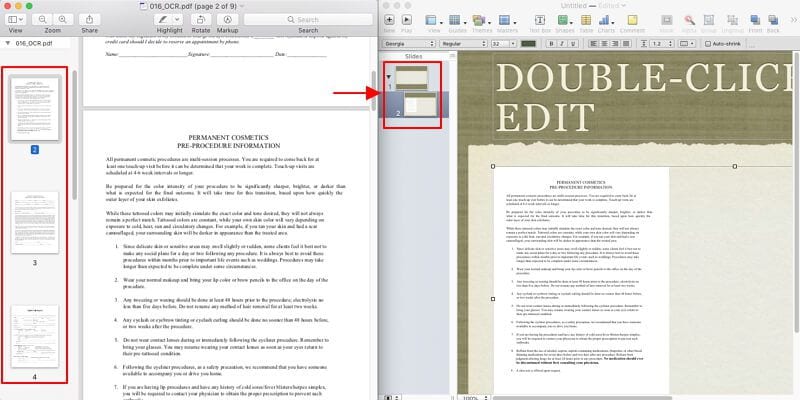
“The hardware that the hyperscalers are developing is not available for purchase,” he said, calling it a “sea change” in computing.
#From pdf to keynote series
He ran through a series of processors designed for the cloud, noting that only one – the Ampere One – was purchasable with money. Moreover, Reed said, those giants are starting to wonder why they’re buying open-market processors and accelerators when they have the money to design and optimize hardware for their own specific workloads. That’s a pretty short list – not because there aren’t problems that might require that, but because the political dynamics of sharing a machine across domains are very real.

Think about any computational model we would run that we could justify devoting a calendar year to running that model. “That’s months to years over exascale-class computing. “There’s a good chance that ChatGPT’s training required over 3×10^25 flops,” Reed said. Atos, Lenovo, HPE – against those of the AI and cloud giants. “That’s where the money is,” he said, showing a graph of market caps for traditional computing companies – e.g. Reed argued that the metaphorical “head of the dog” had shifted from technical computing to AI and hyperscalers. National Academies study conducted on behalf of the National Nuclear Security Administration (NNSA) that concluded that business-as-usual computing would not be adequate for the post-exascale era.
#From pdf to keynote drivers
… There have to be other drivers that make it work.”Īnd, to be clear, there is a need to “make it work.” Reed cited a U.S. Certainly, science is never going to drive that story forward. But: “There’s no scenario I can see in which we’re willing to stand up a €50 billion supercomputer – not unless it is some core national security issue that drives topics we can’t talk about here. So yes, Reed argued, we theoretically could create more and more powerful computers at higher and higher costs. “Don’t misunderstand – we continued to innovate, but we shifted, because the economics did not really support supersonic transport.” “The locus of innovation changed,” Reed said.

To date, supersonic commercial travel hasn’t returned. He drew parallels to the evolution of commercial flight, which stopped speeding up with the rise and fall of the supersonic Concorde jet, which was not economically viable. (“I keep thinking we’re going to plateau on power, but people are now talking about packages that have a thermal dissipation of a kilowatt,” Reed said, drawing concerned murmurs from the audience.)īut Reed wondered whether the era of faster and faster computing – the era of “cheating death” – might be coming to an end. Reed pointed out the shift to exploiting multicore architectures as the most recent example of this phenomenon – but in 2017, he said, the curve again “ran out of gas.” Reed said the HPC community was trying to “cheat death” at the end of Moore’s law, with transistors, thread performance and clock frequency plateauing but costs and energy footprints continuing to grow. We’re in the middle of one of those phase transitions right now.” And then it’s that way, that way, that way – and then it’s something different. “It’s this way, it’s this way, it’s this way – and then it’s something different.

“The history of high-performance computing is one of punctuated equilibrium,” Reed said.
#From pdf to keynote full
A full stop to the punctuated equilibrium? “The diversity of the ecosystem has largely disappeared.” “The world we’re in now is actually a monoculture,” Reed said, citing a Top500 list replete with accelerated x86 systems powered by AMD, Intel and Nvidia. … I’m convinced we may run out of money before we run out of physics.”Īnd there wasn’t much room to branch out, either. “There’s a political limit to the maximum amount we can spend. “We’re increasingly in a situation where, the path we’re on, if we want more performance, it means putting more Euros in the slot,” Reed said. Reed opened by explaining that computing’s “free lunch” was over with the end of Moore’s law and highlighting the “incredibly rapid transition” faced by computing through factors like AI, chiplets, energy pressures and shifting economics. This year’s International Supercomputing Conference (ISC) kicked off yesterday in Hamburg, Germany, with a keynote from Dan Reed, presidential professor at the University of Utah and chair of the National Science Board.

Since 1987 - Covering the Fastest Computers in the World and the People Who Run Them


 0 kommentar(er)
0 kommentar(er)
